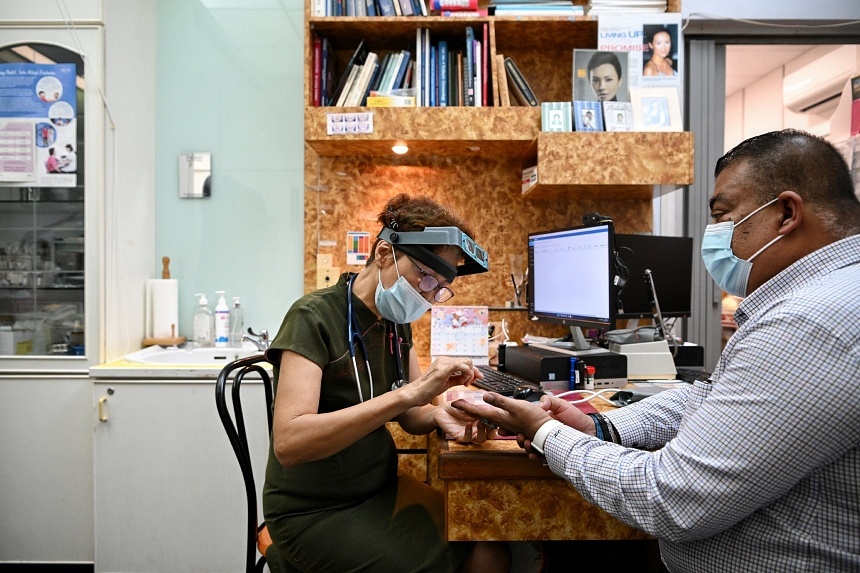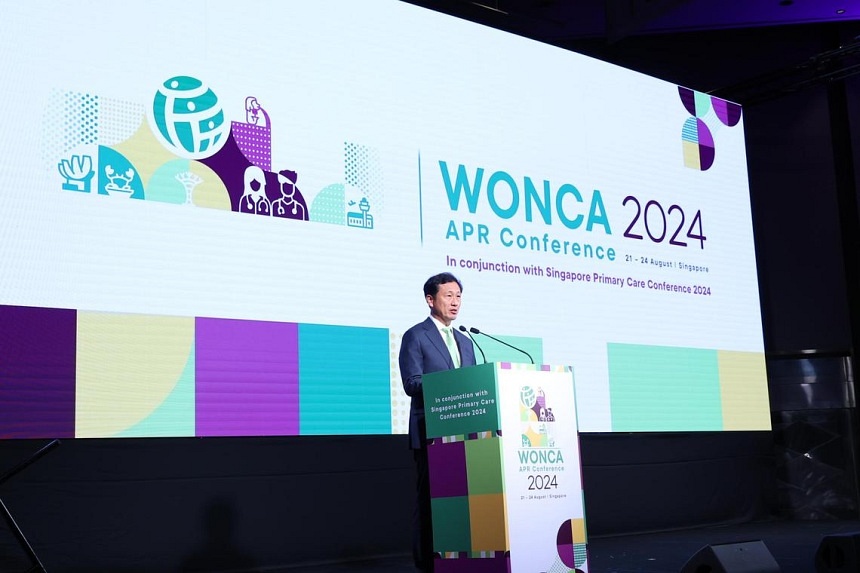Family doctors can become specialists; electronic health records to be compulsory

SINGAPORE – Singapore will continue to invest in and strengthen the primary care sector as it has become an imperative, especially given an ageing population, said Health Minister Ong Ye Kung.
This will include recognising family physicians who undergo additional training as specialists. They deserve the status to stand alongside other specialists, and it also signals the importance of primary care, he told The Straits Times.
Another move, to enable doctors to provide faster and better care, is to make it compulsory for all clinics and hospitals to be part of the National Electronic Health Record (NEHR), which holds the essential health data of patients.
NEHR has been around for many years, but about 30 per cent of private clinics, excluding those providing aesthetic services, and practically all private hospitals are still not part of the system. Legislation will be in place by early 2025 that will force them to input their patients’ medical data.
Mr Ong explained: “Whether it is a family doctor, specialist or hospital surgeon, when they see a patient for the first time, it helps a great deal when they have the medical history, drug allergies and recent diagnostic images of the patient.
“With this information, they don’t have to repeat tests; they don’t have to waste time, and they can make better and faster decisions, for the good of the patients.”
Patients who do not want their information to be accessed on the system may opt out of allowing access.
Speaking at the World Organisation of Family Doctors Asia Pacific Regional Conference at the Raffles City Convention Centre on Aug 22, Mr Ong said Singapore will continue to invest in the competencies of family doctors.
Medical schools will devote more curriculum time to family medicine and preventive care, while practising doctors can improve themselves through continuing education and training.
Mr Ong added, to loud applause from the 1,300-strong audience, including many from overseas: “Given the rising importance and impact of family medicine, MOH (Ministry of Health) will be working with the family medicine fraternity towards recognising family physicians with advanced family medicine training as specialists.”

The minister’s point on the importance of family medicine was echoed by Associate Professor Karen Flegg, the World Organisation of Family Doctors’ president, who said in her welcome address that strong family medicine is the best and most economical way to improve the health of individuals, families and communities.
She said: “The evidence is clear that health systems based on strong primary care, which includes strong family medicine, are the most efficient, equitable and cost-effective.”
Mr Ong also wants to discourage single-doctor clinics because this is no longer ideal.
“As our population gets older, medical conditions are more complex and the clinic may need more expertise, including doing health screening, rehabilitation or physiotherapy work, etc. Private clinics will need to work with and support each other, and more will need to be brought into the primary care networks.”
To be most effective, family doctors need to form strong partnerships, both upstream and downstream.
“Downstream, with secondary and tertiary care in hospitals, in order to escalate cases. Upstream, to community resources, so that social prescriptions such as better diet and more exercise can be followed up,” Mr Ong said.
Under Healthier SG, which promotes a one patient-one doctor model for more holistic care, the 80 per cent of private clinics already on board can leverage the support of various agencies, such as the Health Promotion Board, People’s Association and Sport Singapore, which have numerous touchpoints on the ground, established over decades, to engage and mobilise residents.
So far, more than one million people, representing almost half of the target population of those aged 40 and above, have enrolled in Healthier SG. This take-up rate, said Mr Ong, is “beyond our expectations”.
But good primary care alone is not enough. It needs to be supported by policies that promote healthy lifestyles.
As a result of various measures introduced over the years, fewer people are smoking and more taking part in regular exercise.
The introduction of Nutri-Grade, which indicates the amount of sugar and saturated fats in drinks, has resulted in a gradual but steady decline in sugar consumed here. This, in turn, has resulted in a drop in people with diabetes from 8.8 per cent to 8.5 per cent over five years.
However, more people now suffer from high blood pressure and cholesterol levels – significant risk factors for heart disease. Food is a major culprit, especially sodium and saturated fat.
Mr Ong said people here are consuming almost twice the recommended level of sodium. So, he hopes to introduce Nutri-Grade labelling showing the amount of sodium in food to help people make better choices.
He added: “The area that needs more urgent investment is preventive care, delivered through primary care and family doctors, which are the foundation of health. Investment in primary care has become an imperative, especially given an ageing population.”
Already a subscriber? Log in
Final call! Get unlimited access to ST for $0.99/month
Seize the deal before it's gone
ST One Digital - Monthly
$9.90/month $0.99/month
No contract
$0.99/month for the first 6 months, $9.90/month thereafter. T&Cs apply.
Subscriber-exclusive benefits:
Access all subscriber-only content on ST app and straitstimes.com
Easy access any time via ST app on one mobile device
myST: Follow up to 30 authors and 30 topics
Join ST's WhatsApp Channel and get the latest news and must-reads.










No comments:
Post a Comment